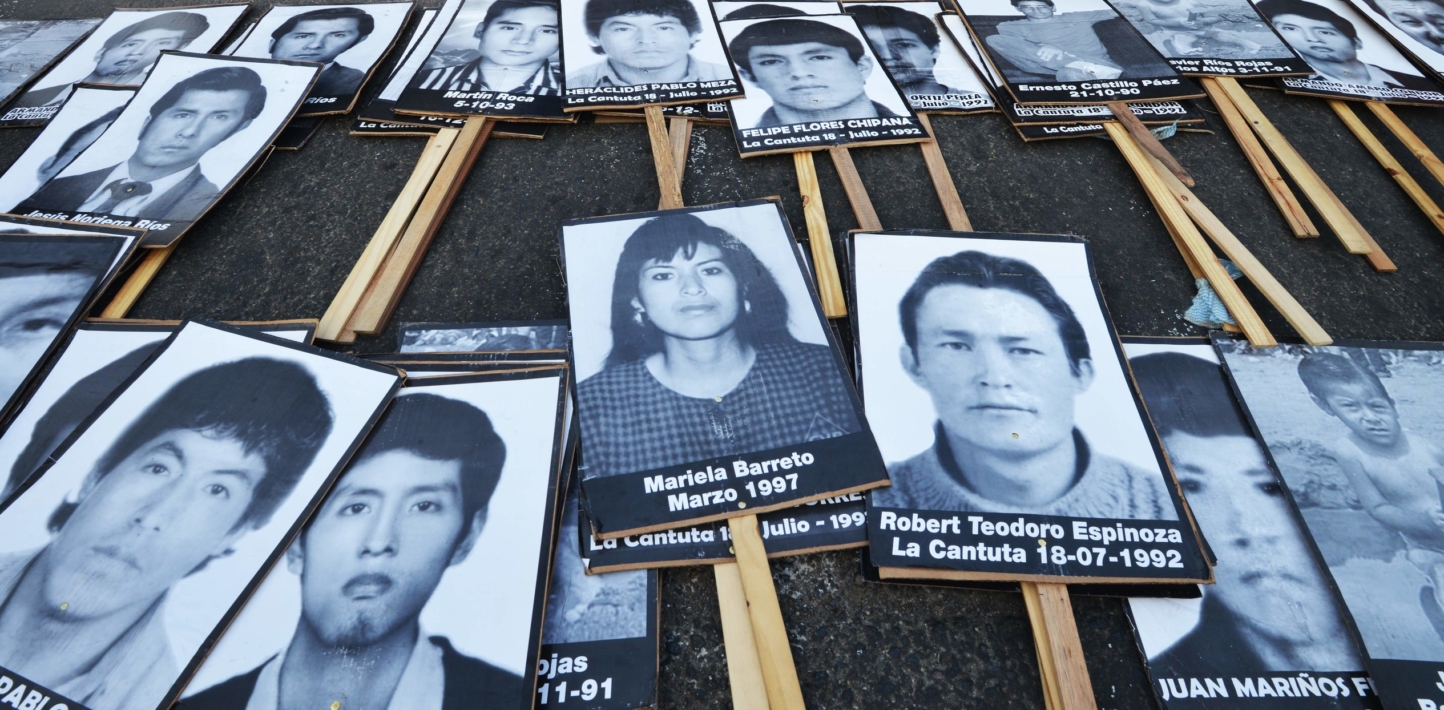In a landmark judgment announced on 15 June 2018, the Inter-American Court of Human Rights ruled that the Peruvian courts must review whether the pardon granted to former President Alberto Fujimori constitutes an unnecessary and disproportionate impact on the right of access to justice of the victims of the Barrios Altos and La Cantuta cases. This sets a historic precedent for human rights, Amnesty International said today.
“The Inter-American Court of Human Rights has set out an important way in which the rights to truth and justice of the victims of serious human rights violations can be guaranteed. The ruling states that the pardon granted to Alberto Fujimori should be reviewed by the Peruvian courts in order to establish whether this measure resulted in an impact on the rights of the victims. This decision represents an opportunity for the justice system in Peru to make good the harm done to victims and acknowledges that the pardon could constitute an obstacle to the fulfilment of state’s obligation to investigate, prosecute and punish crimes under the international law,” said Erika Guevara-Rosas, Americas Director at Amnesty International.
The Inter-American Court of Human Rights has set out an important way in which the rights to truth and justice of the victims of serious human rights violations can be guaranteed. The ruling states that the pardon granted to Alberto Fujimori should be reviewed by the Peruvian courts in order to establish whether this measure resulted in an impact on the rights of the victims
Erika Guevara Rosas, Americas Director at Amnesty International
“The Peruvian justice system must reflect on the serious human rights violations committed in the cases of Barrios Altos and La Cantuta and in its examination of the pardon granted to the former president, it must ensure that victims receive truth, justice and reparation. Amnesty International will continue to support the victims and their communities in their demand for justice,” said Marina Navarro, Executive Director of Amnesty International Peru.
The ruling stated that in cases of serious human rights violations which constitute crimes against humanity, as determined and confirmed by the highest courts in Peru, a measure designed to protect the physical integrity or life of the person convicted of these crimes should only be applied in very extreme cases and should not necessarily result in their release, much less extinguish their criminal liability.
The Inter-American Court, in monitoring of compliance with the judgment, confirmed that it was within its jurisdiction to rule on the humanitarian pardon granted to former President Fujimori and stated that Peru “has not complied fully with its obligation to investigate, prosecute and, if necessary, punish serious violations of human rights” in the Barrios Altos and La Cantuta cases.
On 31 January 2018, Amnesty International submitted a statement in the form of an amicus curiae brief to the Inter-American Court, challenging the compatibility of the pardon granted to Alberto Fujimori with international law applicable in the case.
The Inter-American Court gave the parties until 28 October to submit information on the progress made by the constitutional authorities in reviewing the “pardon for humanitarian reasons” granted to Fujimori, in relation to compliance with the obligation to investigate, prosecute and punish those responsible in the Barrios Altos and La Cantuta cases.
The Peruvian justice system must reflect on the serious human rights violations committed in the cases of Barrios Altos and La Cantuta and in its examination of the pardon granted to the former president, it must ensure that victims receive truth, justice and reparation. Amnesty International will continue to support the victims and their communities in their demand for justice
Marina Navarro, Executive Director of Amnesty International Peru
Additional information:
In 2001 the Inter-American Court of Human Rights issued a judgment in case of Barrios Altos vs Peru regarding state responsibility for the killing of 15 people and the wounding of another four by members of the Colina paramilitary group, as well as for the failure to investigate and bring to justice those responsible for these crimes.
In 2006, the Court issued its ruling in the case of La Cantuta v. Peru for the state’s responsibility for the enforced disappearance and extrajudicial execution of nine students and a professor at the National University of Enrique Guzmán and Valle-La Cantuta by members of the Colina paramilitary group, as well as for the failure to investigate and bring to justice those responsible for these crimes.
Both cases are still at the stage where the Court is “monitoring compliance with its judgment”.
In 2009, the Special Criminal Chamber of the Supreme Court of Justice in Peru, in a unanimous verdict, found former President Alberto Fujimori guilty of the serious injury, murder and abduction of dozens of people, which the Court stated constituted crimes against humanity, carried out by his subordinates when he was Head of State. He was sentenced to 25 years’ imprisonment for these crimes, the maximum allowed for by the Criminal Code in force at the time the crimes were committed. The plenum of the Supreme Court upheld the ruling a few months later.
On 24 December 2017, President Pedro Pablo Kuczynski issued Supreme Resolution No. 281-2017-JUS, granting former President Fujimori “a pardon and the right to grace on humanitarian grounds… with respect to the current convictions and ongoing criminal proceedings”.


